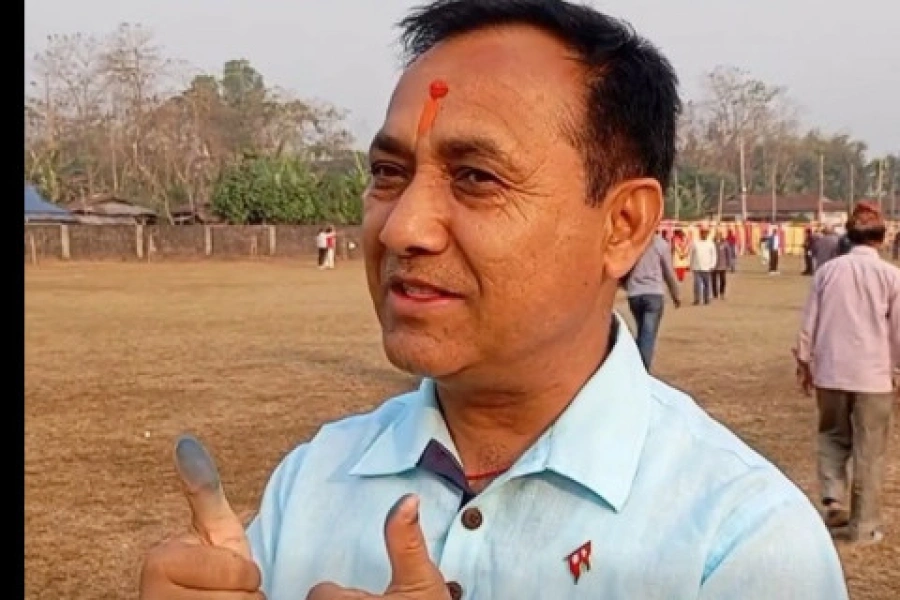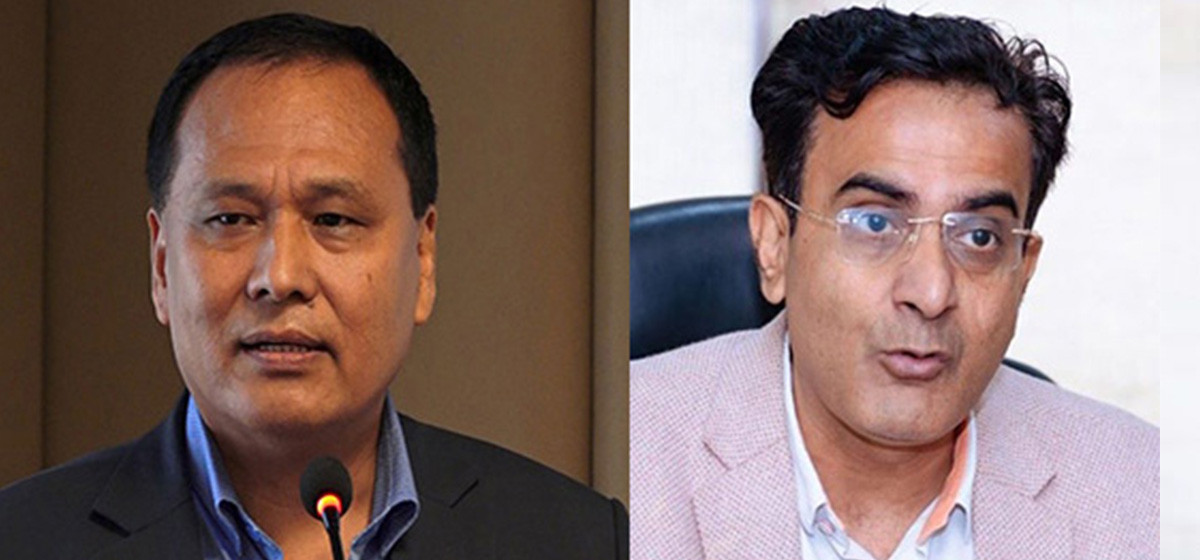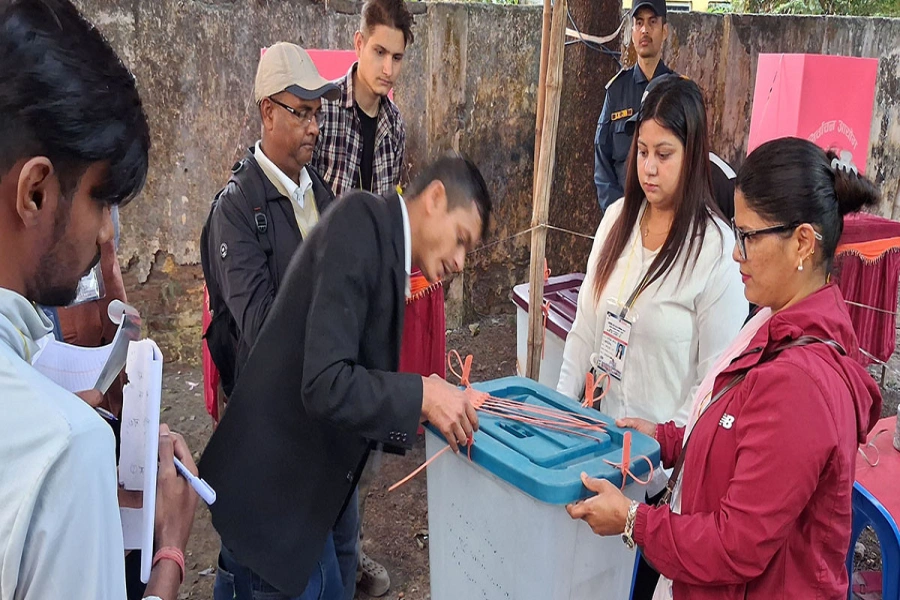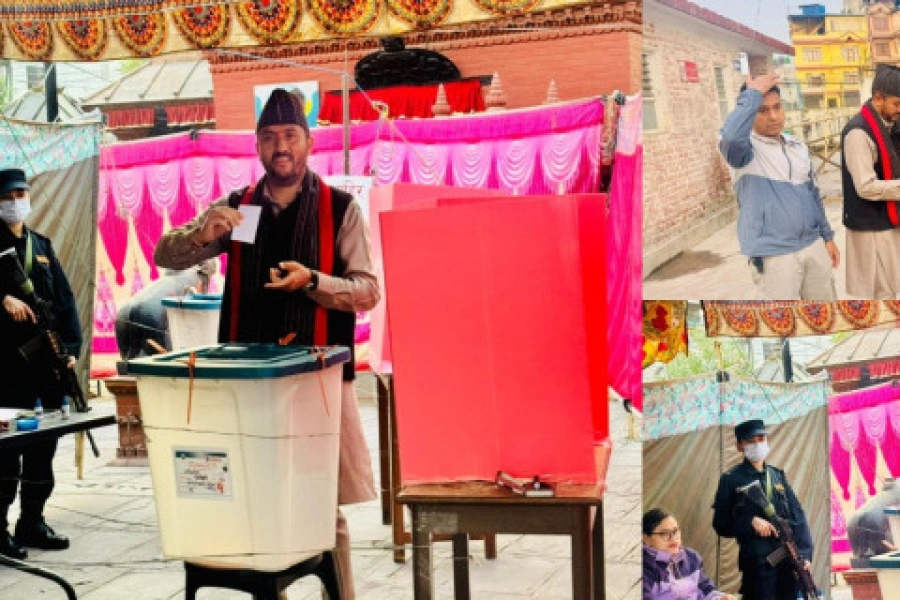Street light tariff dispute continues
KATHMANDU, Oct 9: Disputes between the Nepal Electricity Authority (NEA) and the local governments regarding street light tariff and land use have erupted again. According to the NEA, by the end of June of the fiscal year 2022/23, the tariff for electricity used by local governments for purp[oses such as street lights has reached a whopping Rs 6.0894 billion but the local governments have been dilly-dallying to pay the fee.
On the other hand, the local governments have been claiming that the NEA should provide the fees for erecting electric poles and wires on the roadside land. The NEA issued a public notice on Sunday saying that the local bodies have not paid the street light tariff and requested them to pay the arrears within 45 days.
The NEA alleges that most of the local bodies across the country have a tendency to turn on street lights but refuse to pay the tariff for the same. The spokesperson for the NEA, Suresh Bahadur Bhattarai, said that since various municipalities have not paid Rs 6.08 billion tariff dues for street lights, the NEA has issued a public notice and requested them to pay.
NEA asks firms to clear dues for use of dedicated feeders, trun...

"We issued a public notice on Sunday and asked various municipalities to pay the electricity tariff dues for lighting street lights within 45 days," he said.
Nabin Manandhar, the spokesperson of Kathmandu Metropolitan City, said that they are aware of the notice issued by the NEA. "The dispute between the authority and the local government about street lights is not new," he said, "They have done their job. We will also make our official statement public after necessary discussion.”
The NEA has warned that action will be taken in accordance with the provisions of Regulation 10 of Nepal Electricity Authority, Electricity Fee Collection Regulations, 2078 if the arrears are not paid within the specified time limit.
The NEA has also requested the local governments not to install self-owned and community street lights without obtaining permission from the authority. The local governments have been requested to refrain from installing such street lights and contact the relevant distribution center of the NEA within 45 days as per the regulations to request for installation.
It has been mentioned in the public notice that the NEA will remove the unauthorized streetlights that are not metered. Earlier, the NEA had issued a public notice on September 3 and asked the industrialists who are hesitating to pay the dues by consuming electricity from the trunk lines and dedicated feeder to pay the outstanding amount of Rs 20 billion with fines within 15 days.
Prime Minister Pushpa Kamal Dahal gave verbal instructions and the authority extended the deadline for payment of dues. According to the 60th Annual Report of the Auditor General, 2079, out of the arrears of electricity tariff to be collected by the NEA, Rs 19.95 billion are from 67 industrialists who received electricity through trunk and dedicated lines only, but the NEA is unable to recover that amount from these 67 industrialists who were supplied power through trunk and dedicated lines.
According to the 60th Annual Report of the Auditor General, 2079, the NEA has pointed out that Rs 40.12 billion are yet to be collected for electricity tariff arrears. The electricity tariff arrears of the authority have increased by 10-15 percent compared to the last fiscal year. According to the report, 49.72 percent of the total outstanding amount is owed by 67 industrialists.
Apart from these, the NEA is yet to collect dues worth about Rs 14 billion from other customers. "No action plan has been made to collect the arrears," the report said, "Accounts and other transactions related to the collection of such arrears should be made effective in collection through the process of suspension."
Even though the federal government has decided to pay the street light tariff up to 2074 BS through the Ministry of Finance, a senior official of the NEA says that there is a problem in collecting the arrears as the local governments have not given their approval in principle.
"The federal government has decided to make the payment of until 2017, but the problem has arisen as the local governments have not agreed to pay the bill to the authority," said a high-level source, "The local governments are reluctant to pay the dues of the street lights, raising the dispute over the jurisdiction of the road."




































